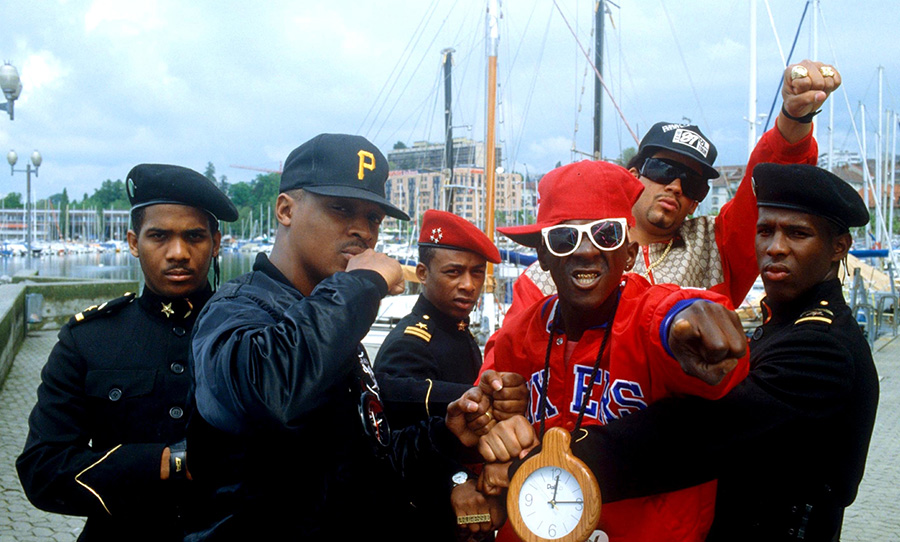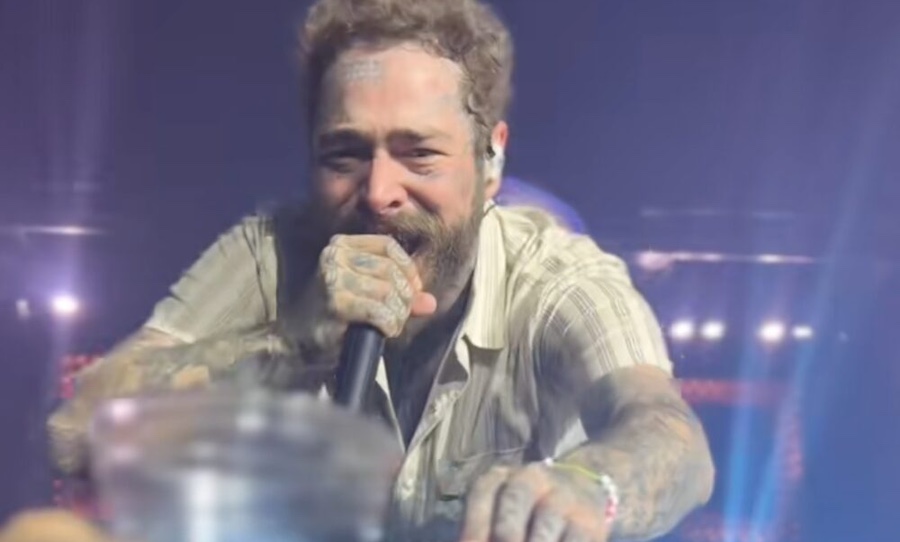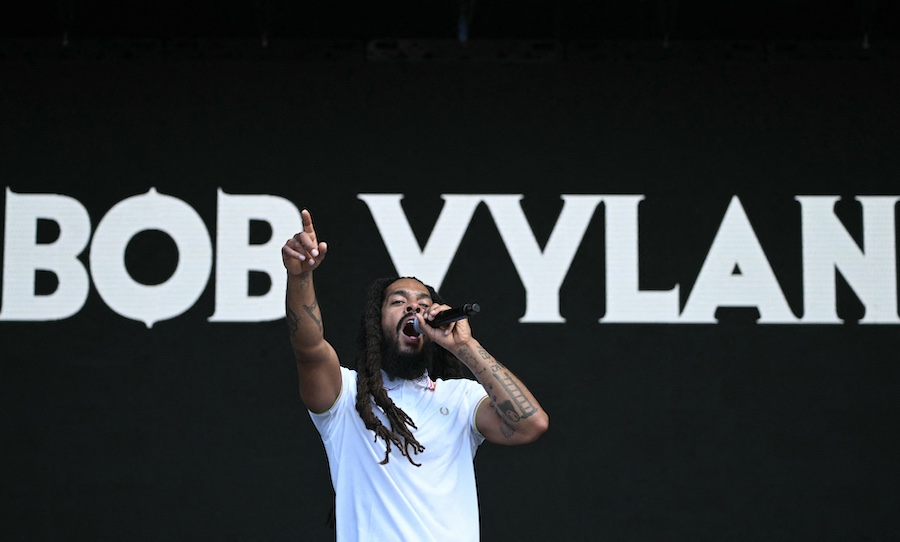Malcolm X’s words “too black, too strong” slowly arise at the beginning of Public Enemy’s Bring the Noise. Suddenly, you need to sit down. The beat hits with such an overwhelming force. A stampede of elephants is perhaps the only accurate way to describe this prophetic explosion of noise.
Those four words weren’t just a randomly chosen quote from one of the most important figures of the 20th century, they represent what Public Enemy wanted you to face up to. This is Public Enemy entering your world. They wanted you to confront prejudice, race, religion, and power. Public Enemy never suppressed their urge to set the world on fire. They set out to fight the powers that be, and they couldn’t have done a better job of it.
In the late 80s, Public Enemy released two of the most important hip-hop albums of all time, bringing noise and a message back to music that reverberates to this day.
Originating from Long Island New York, Public Enemy never quietly manoeuvred their way to the top; they exploded fast and furiously. Formed in 1985 by university students Carlton Ridenhour (Chuck D) and William Drayton (Flavor Flav), the two wanted to make music that wasn’t just socially conscious but musically explosive.
After being heard by Rick Rubin, the band’s early demos began to be circulated among producers, eventually landing the group a support spot on The Beastie Boys Licensed to Ill tour in 1986. This was even before the newly named Public Enemy had released their debut album.
In 1987, the group released their debut Yo! Bum Rush the Show. Produced by the Bomb Squad using their famous sampling of innumerable funk and soul records, the album was an instant critical success. However, Chuck D’s lyrics garnered controversy for their open support of black nationalism. Although the album introduced Chuck D’s defiance and Flavor Flav’s humour, along with the group’s logo of an African American in the sights of a rifle, it has largely been overshadowed by what came next.
It is nearly impossible to overestimate just how shocking Public Enemy’s next two releases were. They were a one-two punch that elevated hip-hop to such a hight of social critique and musical revolution that almost all future releases in the genre music can draw a direct lineage to these albums.
The first of which is 1988’s It Takes a Nation of Millions to Hold Us Back. After touring behind their debut album, the group realised that they needed to produce an album that was reflective of the energy and aggression they gave on stage. Entering the stage with backup dancers armed with Uzi’s and intense energy to match, Public Enemy were a feared live act. While recording It Takes a Nation…, the group wanted to make a new socially-conscious hip-hop record that could be considered on par with Marvin Gaye’s game-changing What’s Going On. Chuck D described the album as “our mission was to kill the ‘Cold Gettin’ Dumb’ stuff and really address some situations.”
When composing the album, Chuck D and the Bomb Squad spent days choosing the correct samples to create and build completely new sounds that had never been experienced in music. Chuck D explained the collaboration, “It wasn’t that we took records and rapped over them, we actually had an intricate way of developing sound, arranging the sound. We had musicians like Eric Sadler… Hank Shocklee, the Phil Spector of hip hop. You’ve got to give the credit as it’s due, if Phil Spector has the Wall of Sound Hank Shocklee has the Wall of Noise.” All of these samples “were compiled into one focussed aural missile.”
Chuck D’s booming voice rides over the top of all this “organised noise” as the constant that holds the chaos together. Only through the chaos can Chuck D’s voice shine through. Blasting white supremacy and shouting self-empowerment, the lyrics cover every nook and cranny of society that deserves critique and requires a voice. Songs like Bring the Noise and Black Steel in the Hour of Chaos blast institutionalised racism and force the listener to confront the noise and the message simultaneously. Elsewhere, She Watch Channel Zero?! and Rebel Without A Pause use heavy bass and metal samples to show the possibilities in the production techniques of hip-hop. All the while, the album features snippets from the groups live concerts, giving a rare glimpse into what sounds like some of the most batshit crazy live performances ever held.
The album wasn’t just one of the greatest critical successes of all time. It blasted Public Enemy to the forefront of the hip-hop world. Selling hundreds of thousands of copies, the record is now widely regarded as the greatest hip hop record of all time. It still remains the most highly acclaimed hip-hop album of all time, including placing as the highest-rated hip-hop album on Rolling Stone’s list of the greatest albums of all time. The album showed that Public Enemy were hip-hop’s answer to The Clash. They wanted to change the game, so they did.
Even more impressively, their 1990 followup, Fear of a Black Planet, refines and heightens everything that made It Takes a Nation of Millions… so mind-blowing. The new album was designed for live shows. The songs channelled chaos into precise snippets.
The album also openly confronts criticism aimed at the band. Professor Griff, one of the group’s members, had been fired after making anti-Semitic comments in 1989 by Chuck D. The group also wanted to create a work that was representative of their true core beliefs, all the while moving in new musical directions. In an attempt to condense Dr Frances Cress Welsing “Colour Confrontation and Racism (White Supremacy)” into an album format, the group needed to think big picture rather than a collection of sounds. Chuck D stated that the group “wanted really to go with a deep, complex album … more conducive to the high and lows of great stage-performance.” The sound of the album according to Chuck was “to create a new sound out of the assemblage of sounds that made us have our own identity. Especially in our first five years, we knew that we were making records that will stand the test of time. When we made It Takes a Nation of Millions to Hold Us Back we were shooting to make What’s Going On by Marvin Gaye and when we made Fear of a Black Planet I was shooting for Sgt. Pepper’s.”
The album that came out on April 10th, 1990 is the closest thing hip-hop has to a Sgt. Pepper. A creative conglomeration of everything that came before into a cohesive and perfected whole. The samples were flawless, the songs moved at pace, nothing was left unsaid, the world was Public Enemy’s oyster and they ate an ocean of them. Just admire Chuck D’s lyricism, “Lazer, Anastasia, maze ya / Ways to blaze your brain and train ya … Sad to say I got sold down the river / Still some quiver when I deliver / Never to say I never knew or had a clue / Word was heard, plus hard on the boulevard / Lies, scandalizin’, basin’ / Traits of hate who’s celebratin’ wit Satan?” Chuck D remains one of the most underrated MC’s in history, and he is on full display on Fear of a Black Planet.
The album boasts some of Public Enemy’s greatest songs. Brothers Gonna Work it Out, Power to the People and Can’t Do Nuthin For Ya Man all hold up as classics to this day. Burn Hollywood Burn even features a guest appearance from their West Coast counterpart Ice Cube showing a time when the two coasts weren’t battling against each other but trying to get a message heard. The album itself was just as critically acclaimed as It Takes a Nation of Millions, however, it helped hip hop explode into the mainstream consciousness. Reaching the top 10 in the US, Fear of a Black Planet was one of the most important releases of hip-hops golden age.
However, when remembering this period of Public Enemy, it is one collaboration that has reverberated throughout history. Hired by up and coming director Spike Lee to soundtrack his new film, Do the Right Thing, Public Enemy unleashed what would become their defining statement along with the masterstroke on Fear of a Black Planet.
That song is Fight the Power. Arguably the most important and influential, along with being one of the greatest hip-hop records of all time. Sampling numerous James Brown songs to make a hip-hop anthem, the track moves at a terrifying pace that simply seethes with energy and anger.
Chuck D states the groups rallying call within the first verse, “Now that you’ve realised the pride’s arrived / We’ve got to pump the stuff to make us tough / From the heart / It’s a start, a work of art / To revolutionise”. He goes onto destroy the perspective that white heroes are representative of the world at large, “Elvis was a hero to most / But he never meant shit to me / Straight up racist, the sucker was / Simple and plain”. Flavor Flav interrupts adding, “Muthafuck him and John Wayne!”
The song would become a massive hit for the group, and in turn, become their rallying call. In a Time magazine article, Janice C. Simpson explained, “The song not only whipped the movie to a fiery pitch but sold nearly 500,000 singles and became an anthem for millions of youths, many of them black and living in inner-city ghettos.”
The song came “at a crucial period in America’s struggle with race, capturing both the psychological and social conflicts of the time.” What’s still shocking is that the song is just as prevalent today. Not much has changed since Spike Lee’s powerful film and this magnificent song, and that truly is terrifying. The group would go onto other styles and other messages (along with some strange career choices), however, nothing ever came close to their early run of masterworks which solidified their permanent position as one of the most important groups in music.
Rewatching Spike Lee’s masterpiece Do the Right Thing again the other week made me confront the fact that almost nothing in today’s society has moved forward. Public Enemy’s soundtrack, grounded by the repeated use of Fight The Power throughout the film, is just as awe-inspiring. We are still faced with the issues that Public Enemy were warning us about back in the late 80s. If they were public enemies back in the day, they would still be public enemies to capitalism, large corporations and money-hungry men around the world today.
The constant inclusion of Fight The Power throughout Spike Lee’s film, including the eventual destruction of the noise at the hands of white society (when Sal destroys Radio Raheem’s boombox just before Raheem’s death at the hands of a white police officer) shows the attempts made to quieten the social movement. However, as we move across the destruction of Sal’s Pizzeria, Fight The Power fades back in, and we know that over the hell that is experienced, the voice shouting to fight the powers that be can never be fully silenced.
Public Enemy’s music will never remain quiet. It will always be groundbreaking. It will be the music that forced me to face the privilege I have experienced. It taught me that I had to be a part of change along with the need to understand and learn the issues that plague society to this day. Public Enemy put a mirror up to the world and made it take a long hard look at itself. If that’s not what music is meant to do, if that’s not how revolutionary music is meant to be, I don’t see the point in listening to music at all.
Go listen to It Takes a Nation of Millions to Hold Us Back or Fear of a Black Planet and blast every song as loud as you possibly can. Feel the drive to make a change. As recently as today, people were protesting in front of the White House while playing and dancing to Fight The Power on repeat. This fight has been going on for a long time, and Public Enemy knew just how to soundtrack it.



